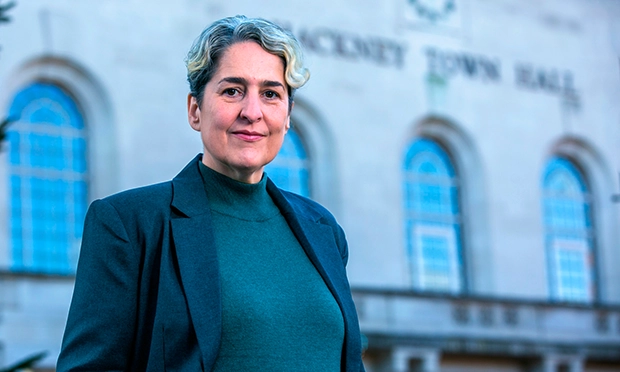Council declines to rule out further cuts if government funding falls short

Hackney Mayor Caroline Woodley. Photograph: Hackney Council
Hackney Council has refused to rule out further cuts to offset a “dramatic increase” in costs for essential services – after warning that the government’s latest funding boost “still doesn’t cover” what it needs.
In December, Mayor Caroline Woodley warned that while the local government finance settlement was a “step in the right direction”, the borough was still facing “extreme financial pressure”.
“I am pleased to see this government recognises the impact of 14 years of austerity imposed by the previous administration, and that Hackney is set to benefit from the new ‘Recovery Grant’,” she said.
“While the funding and certainty for next year is a strong step in the right direction, it still doesn’t cover what we need to address the increasing demand for our services, particularly in the area of housing needs.”
This week the council told the Citizen it had received close to £25 million in government grants, with the most significant portions being £9.7 million in ‘recovery’ money and £6.6 million for social care.
When asked about what further help it requires from central government, a council spokesperson said the Town Hall was focused on the “underlying causes” driving up costs in areas like housing and social care.
These can be tackled by “giving private renters greater security and funding a new generation of council homes,” the spokesperson said.
Hackney’s finance chief, Cllr Robert Chapman, previously cautioned that “more difficult decisions” were imminent as he confirmed the borough was facing a projected £36 million shortfall in its accounts.
In November, the mayor announced the council was seeking to claw back £67 million in spending by 2028. So far, this has seen cuts to areas like charity and voluntary sector grants and youth services.
Cllr Chapman has also not ruled out seeking emergency cash from the government in the future should the council not get more support for its multi-million pound overspend on temporary housing and social care — which it has a legal duty to provide.
When asked if the council was mulling further cuts to services if a more “permanent fix” does not emerge, the spokesperson said: “We are currently updating our medium-term financial position, again taking into account updated assumptions, and this will be published as part of the 2025/26 budget report.”
They added that the recent local government settlement “helps in closing [the] gap”.
But as the council prepares its budget plans, opposition members have chimed in to give their views on how the Town Hall can fix its financial woes.
Hackney’s Conservatives told the Citizen the council would save millions of pounds by abandoning its planned revamp of Pembury Circus in Hackney Central.
“There’s nobody who’s happy with that scheme. Not the pro-road closure [groups], not the anti-road closures. So why should this money be spent [on it]?,” said Cllr Simche Steinberger.
Cllr Liam Davis of the Green group slammed the council’s reference to “tough decisions” and argued any difficult cuts were “of [its] own design”.
“Mayor Woodley is right to highlight the lack of sufficient funding to address Hackney’s housing crisis or invest in energy-saving measures that could bring down bills for residents,” he said.
“But instead of challenging their party to secure a transformed local government funding deal or real revenue-raising powers, Hackney Labour seems content to nod along as their leadership tinkers at the edges with temporary fixes and inadequate grants.”
He also attacked the council for “squandering” nearly £700,000 on a mayoral election following the resignation of Philip Glanville, “accompanied by countless council by-elections since 2022, all at local cost”.
Cllr Davis added that at the next full council meeting, the Greens would present their motion for a wealth tax to fund the services Hackney’s communities “desperately need”.
Hackney Independent Socialists group, comprising three ex-Labour councillors, said there was “no denying” austerity policies had damaged the economy at both national and local levels, but there were ways for the Town Hall to avoid cutting services, put money in people’s pockets and “contribute to our circular economy”.
“We are losing significant income from empty dwellings, [and] though there’s a significant amount of money required to get these properties ready for use, the income should outweigh the investment and it will help reduce the large sums we spend on temporary accommodation,” the group said.
They also called for an “urgent” review of procurement contracts, owing to some subcontractors charging high fees for suboptimal service, resulting in persistent repairs visits.
“[This] delays progress and has led to a large number of residents taking Hackney Council to court and [being paid] millions in compensation,” they said.
The group added that the Town Hall could invest in retrofits to make resident’s homes more energy efficient and help them save money, along with ensuring all those eligible for welfare benefits were claiming them so that all unclaimed benefits were put back into the local economy.
